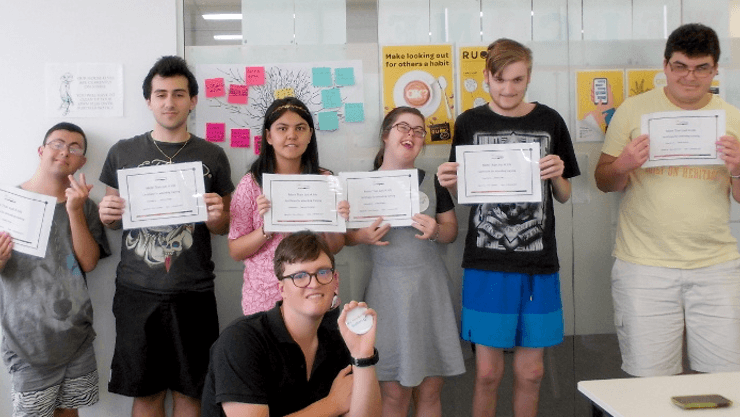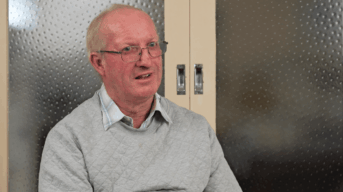
Young people with disability prepare for a career
“Young people with disability have the right to employment and can make a difference within their community”. Alex Elliot, one of our project workers, reports on workshops he has been co-presenting as part of an exciting new disability and employment project.
Over six weeks in October, I co-presented workshops for young people with disability. The workshops were aimed at people with intellectual disability who want to get ready for work.
The young students who attended the workshops are fresh out of school, either doing work experience or looking for their first career. We worked to instil a sense of pride in what they can do and how they can go about gaining and keeping steady employment.
Together, we learnt about what is important to them, choices and strengths, goals and making changes, speaking up and asking for support, working with others and being a leader.
Six weeks, six workshops
In Week one, we discussed what was important to the students. What did they have that made them feel special? This acted as an ice-breaker. We talked about the ways that having a job and earning a wage can make their life good.
Week two saw us dealing with choices and strengths. We discussed that their choices for employment could differ over time. I gave my own story as an example – how I started off looking for library work, then pursued education before ending up at Council for Intellectual Disability (CID).
Week three covered goals and making changes. We gave the students hand-outs that helped them lay out their ideal job, as well as the steps that they could take in order to get to that goal.
Their employment goals ranged from working with computers to pet stores, and from digital design to working in fashion. I felt it necessary to say that a goal can change over time, but that this was okay, because our career paths can change.
Week four dealt with speaking up and asking for support. Many of the students had been bullied at school or came from cultures that do not encourage speaking up. We covered supports in society and the community, as well as supports within their own families. We talked about how a problem at work can be investigated and fixed.
Week five covered working with others. I talked about my experience of working in a team within CID, and how working as a team solved problems better than working alone. We used videos of cartoon animals helping each other out to avoid danger. These videos were attention-grabbing and a good training tool for people with intellectual disability or whose first language is not English.
Week six was titled ‘I Am a Leader’. We discussed role models and how the students can be leaders in their own lives and communities.
It was important to bring the subject back to them, as this raised their confidence and made them feel normal, not ‘freaks’ or ‘different’. We talked about how leadership mattered.
At the end of the sixth workshop, we presented the students certificates and congratulated them.
Breaking down barriers
The six weeks were entertaining, enlightening and delightful.
As co-facilitator, I felt humbled to work with people who have not had it easy. I approached this work with the idea that I could become a role model for them, to demonstrate that the goal of employment was always possible.
I enjoyed directly working with students as I could see how they developed their leadership skills. When the course began, the students were shy and reluctant to take part. By week six, the barrier had broken down and they were truly enjoying the lessons. It was refreshing for them to have staff who did not lecture them and were more welcoming. We received a lot of thanks and praise.
A lasting impression
I believe that this course is important for people with a disability as it helps them realise that they too have the right to employment and that they can make a difference within their community.
The program demonstrated to these students that they are no different and that they can rise to the top of their chosen paths.
We have instilled confidence and enthusiasm within one group of young people, and this is a start in a campaign to do the same for many more.
About More Than Just a Job
The workshops that Alex co-presented were part of our new project, More Than Just a Job, which aims to provide skills and resources to organisations and staff so they can support people with intellectual disability to develop their skills and careers.
Our thanks to Disability Services Australia, who requested the workshops for its School Leavers Employment Supports program.
Find out about our More Than Just a Job training for people with disability and organisations.
More Than Just a Job is funded by the NDIS through the Information, Linkages and Capacity Building (ILC) – ILC National Readiness Grants.
Links
- Watch a video in which Alex talks about how important meaningful work is to him.
- In our Inclusion High 5 video Alex talks about his experience at school View all Inclusion High 5 videos.



 1800 424 065
1800 424 065 














